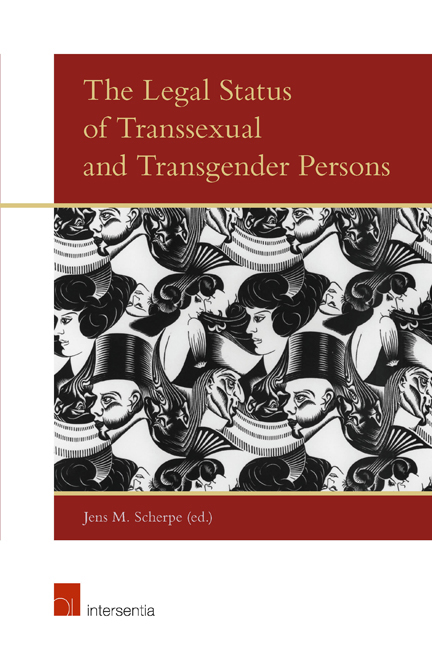Book contents
- Frontmatter
- Dedication
- Preface
- Contents
- List of Contributors
- Introduction
- PART I MEDICAL/PSYCHOLOGICAL VIEWS
- PART II CHRISTIAN VIEWS
- PART III LEGAL VIEWS
- Europe
- Asia
- Australia and New Zealand
- Varieties of Decision-Making: Reflections on Deciding Re Kevin
- Australia
- New Zealand
- North and South America
- PART IV CONCLUSION
Varieties of Decision-Making: Reflections on Deciding Re Kevin
from Australia and New Zealand
Published online by Cambridge University Press: 28 November 2017
- Frontmatter
- Dedication
- Preface
- Contents
- List of Contributors
- Introduction
- PART I MEDICAL/PSYCHOLOGICAL VIEWS
- PART II CHRISTIAN VIEWS
- PART III LEGAL VIEWS
- Europe
- Asia
- Australia and New Zealand
- Varieties of Decision-Making: Reflections on Deciding Re Kevin
- Australia
- New Zealand
- North and South America
- PART IV CONCLUSION
Summary
INTRODUCTION
Re Kevin was an application for a declaration of the validity of a marriage between a woman (‘Jennifer’) and Kevin, who was born with female characteristics but whose affirmed sex was male. It was common ground that a marriage required a man and a woman – the question whether a same-sex relationship could be a ‘marriage’ did not arise in the case.
The case was conducted, magnificently, by Rachael Wallbank, who also appeared on the appeal. The Attorney-General of Australia opposed the application, saying that it was not a valid marriage, since Kevin was a woman, not a man. According to the Attorney-General (represented by a distinguished QC, Henry Burmester, as well as junior counsel), the law had been settled in Corbett, a famous English decision of 1971. Corbett said that a person's sex was determined exclusively by certain physical features at the time of birth: gonads, chromosomes and genitals. If those features were congruent (as they were in Kevin's case) they would determine the person's sex, which was thus fixed at birth and could not be changed by any later development, whether the person's self-image, family life, social acceptance, or natural physical development, hormone treatment or surgery. Anything ‘psychological’ was irrelevant. If Corbett was to be followed, Kevin was a woman and the application for validity of the marriage would have to be dismissed.
Wallbank argued that Corbett was wrong, and that determining whether a person was a man or a woman required attention to other facts as well, especially the person's experiences since birth. Consistently with that, the case she presented was rich in detail, with much evidence about Kevin and his experiences, expert medical evidence about the nature of his condition, and evidence about his acceptance as a man into the community. Consistently with the Corbett decision, the Attorney-General took the view that most or all of this material was legally irrelevant, but otherwise challenged virtually none of it. So after the preliminaries, the hearing consisted of two days’ legal argument, with a daunting pile of unchallenged evidence.
I have already complimented Rachael Wallbank on her presentation of the case. I should also acknowledge two features of the Attorney-General's handling of the case. First, I understand that Kevin's case was supported by Commonwealth legal aid funds.
- Type
- Chapter
- Information
- The Legal Status of Transsexual and Transgender Persons , pp. 443 - 456Publisher: IntersentiaPrint publication year: 2015



